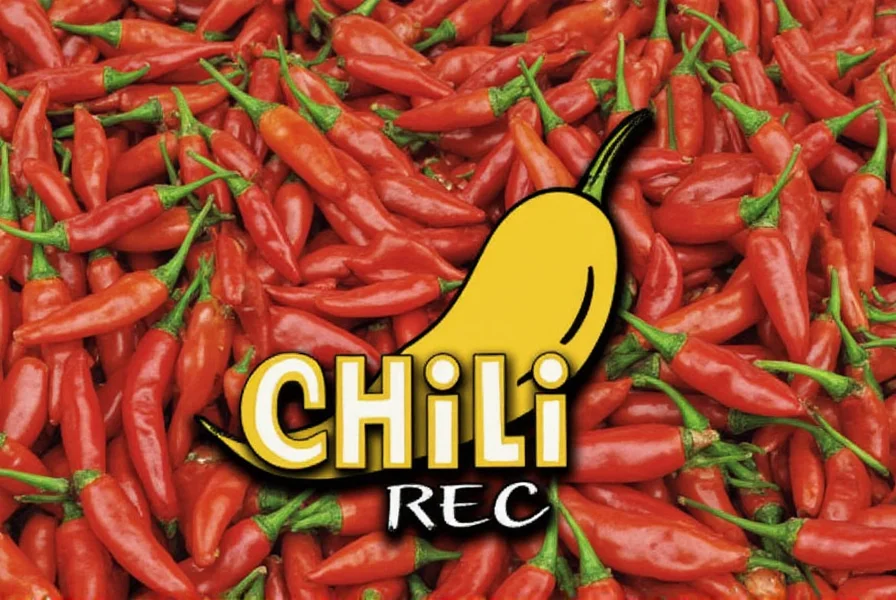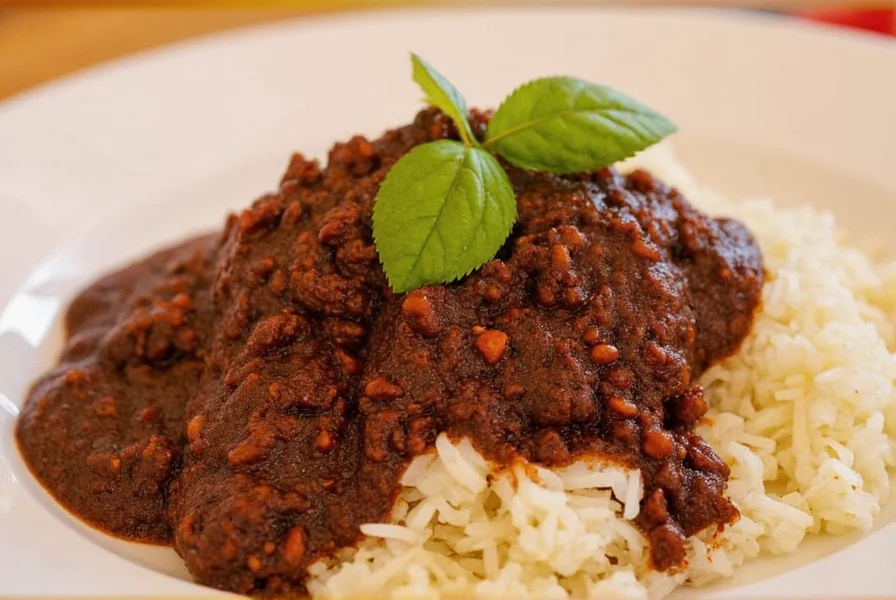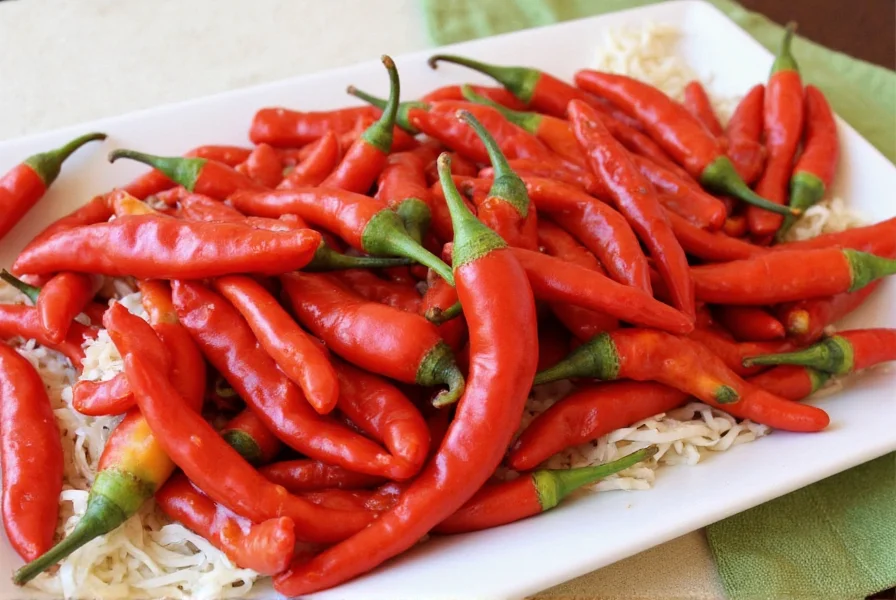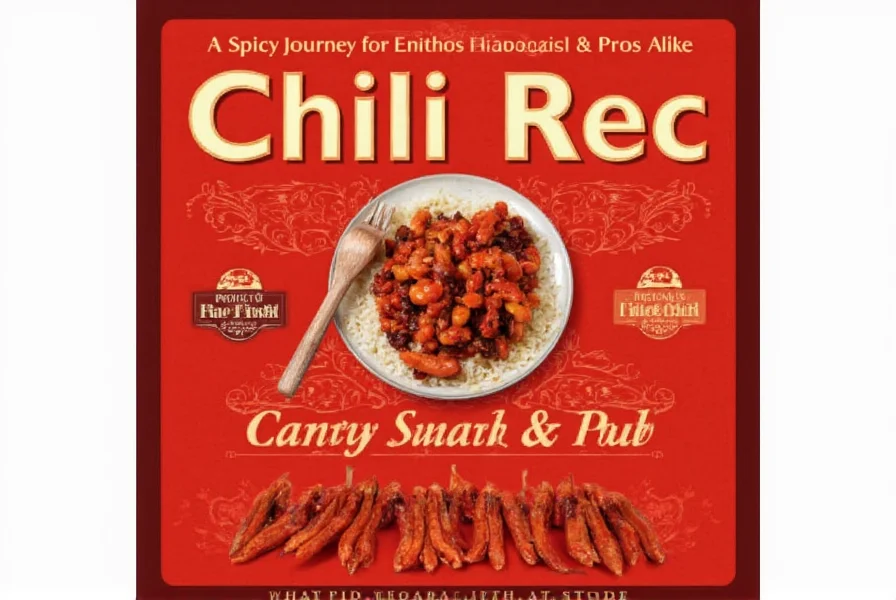Table of Contents
Introduction to Chili Rehydration
Rehydrating dried chilies is the process of restoring dried peppers to their original state for cooking. This technique is essential for unlocking their full flavor potential in dishes like sauces, curries, and salsas.

Whether you're making a spicy sauce, a rich curry, or a smoky salsa, understanding how to properly rehydrate your chilies can make all the difference in flavor and texture. In this article, we'll explore what chili rehydration is, why it's important, and how you can master it like a pro.
Why Chili Rehydration Matters
Chili rehydration isn't just about convenience—it's about unlocking the full potential of your spices. Dried chilies are more concentrated in flavor and heat than their fresh counterparts, but without proper rehydration, they can become tough, bitter, or even tasteless.
By rehydrating chilies, you not only restore their moisture but also release their essential oils and aromas, which contribute to the overall flavor profile of your dish. This makes chili rehydration an essential step in many traditional cuisines, from Mexican to Indian and beyond.

How to Rehydrate Dried Chilies
Rehydrating dried chilies is straightforward, but there are several methods you can choose from depending on your needs and equipment. Here's a quick breakdown:
- Soaking: Place the dried chilies in a bowl of warm water for 20–30 minutes until they soften. This method is ideal for most types of chilies.
- Steaming: Steam the chilies for 5–10 minutes. This works well for larger chilies like poblano or ancho.
- Boiling: Boil the chilies for 10–15 minutes if you need a quick rehydration or plan to use them in a liquid-based recipe.
After rehydrating, remove the stems and seeds (if desired) and blend them into sauces, stews, or salsas. The resulting puree adds depth, color, and heat to your cooking.

Buying Guide for Dried Chilies
If you're serious about chili rehydration, choosing the right chilies is key. Different varieties offer unique flavors and heat levels, so it's important to know what you're getting before you buy.
| Chili Variety | Heat Level (Scoville) | Flavor Profile | Best for |
|---|---|---|---|
| Chipotle | 2,500–8,000 | Smoky, earthy | Sauces, stews, grilled meats |
| Ancho | 1,000–1,500 | Sweet, mild | Mexican dishes, mole, salsas |
| Guajillo | 2,500–5,000 | Tangy, slightly sweet | Marinades, soups, tamales |
| Cayenne | 30,000–50,000 | Sharp, hot | Hot sauces, spice blends, seasoning |
| Poblano | 1,000–1,500 | Mild, grassy | Stuffed peppers, soups, salsas |
When buying dried chilies, look for ones that are plump, firm, and free of mold or cracks. They should have a strong, aromatic scent. If you're unsure about the variety, ask the seller for recommendations based on your cooking style.

Practical Tips for Chili Rehydration
Here are some expert tips to help you get the most out of your chili rehydration:
- Use fresh water: Always use clean, room-temperature water for soaking. Avoid using boiling water unless you're planning to cook the chilies immediately.
- Don't over-soak: Over-soaking can cause chilies to become too soft or lose their flavor. Keep an eye on them and stop when they feel pliable but still hold their shape.
- Save the soaking water: The liquid from soaking chilies is packed with flavor. You can use it as a base for broths, stews, or even as a substitute for water in recipes.
- Blend for best results: Once rehydrated, blend the chilies into a smooth puree for maximum flavor and consistency. Add a bit of oil or vinegar to enhance the richness.
- Experiment with combinations: Mix different chili varieties to create custom heat and flavor profiles. For example, combine chipotle and guajillo for a smoky, tangy sauce.

Frequently Asked Questions
What is chili rehydration?
Chili rehydration is the process of restoring dried chilies to their original state by soaking, steaming, or boiling them to restore moisture and release essential oils and flavors locked in during drying. This prepares them for use in sauces, salsas, and other dishes.
How long should I soak dried chilies for optimal results?
Most dried chilies need 20-30 minutes of soaking in warm water to fully rehydrate. Thicker chilies like ancho or guajillo may need the full 30 minutes, while thinner varieties might be ready in 15-20 minutes. The chilies should become flexible but still hold their shape—not mushy. Check them periodically by gently bending to test their pliability.
Should I remove seeds before or after rehydrating chilies?
It's generally easier to remove seeds after rehydration. Once softened, you can simply split the chili open and scrape out the seeds and membranes with a knife or spoon. Removing seeds before rehydration is difficult because dried chilies are brittle and can break apart. Remember that most of the heat resides in the seeds and membranes, so removing them reduces spiciness.
Can I use the soaking liquid from rehydrated chilies in my recipes?
Absolutely! The soaking liquid is packed with flavor and color from the chilies. Many professional chefs use this liquid as a base for sauces, soups, or stews instead of plain water. It adds depth and complexity to your dishes. Just be aware that it will contribute heat, so adjust your recipe accordingly. Strain the liquid through a fine mesh sieve before using to remove any small particles.
What's the difference between steaming and soaking chilies?
Soaking fully submerges chilies in water, which provides more even rehydration but can sometimes cause flavor to leach out into the water. Steaming keeps the chilies above the water line, preserving more of their concentrated flavor while still softening them. Steaming works particularly well for larger chilies like poblanos that might become too waterlogged when soaked. Both methods take approximately the same time (5-15 minutes), but soaking requires monitoring to prevent over-soaking.
How can I tell if my dried chilies have gone bad before rehydrating?
Fresh dried chilies should have a rich color (deep reds, purples, or browns depending on variety), be pliable enough to bend slightly without shattering, and have a strong, pleasant aroma. Signs they've gone bad include mold spots (white or green fuzzy patches), an off or musty smell, extreme brittleness where they crumble to dust when touched, or a significantly faded color. Properly stored in an airtight container in a cool, dark place, dried chilies can last 1-2 years.
Conclusion
Chili rehydration is more than just a technique—it's a gateway to deeper, more complex flavors in your cooking. Whether you're a seasoned chef or a home cook with a passion for spices, mastering chili rehydration can elevate your dishes to new heights.
From the perfect soak to the ideal blend, every step in the process contributes to the final result. So next time you reach for a bag of dried chilies, remember that with a little care and attention, you can unlock their full potential and bring your recipes to life.
And remember—when it comes to chili rehydration, the right tools and techniques can make all the difference. Happy cooking!











 浙公网安备
33010002000092号
浙公网安备
33010002000092号 浙B2-20120091-4
浙B2-20120091-4